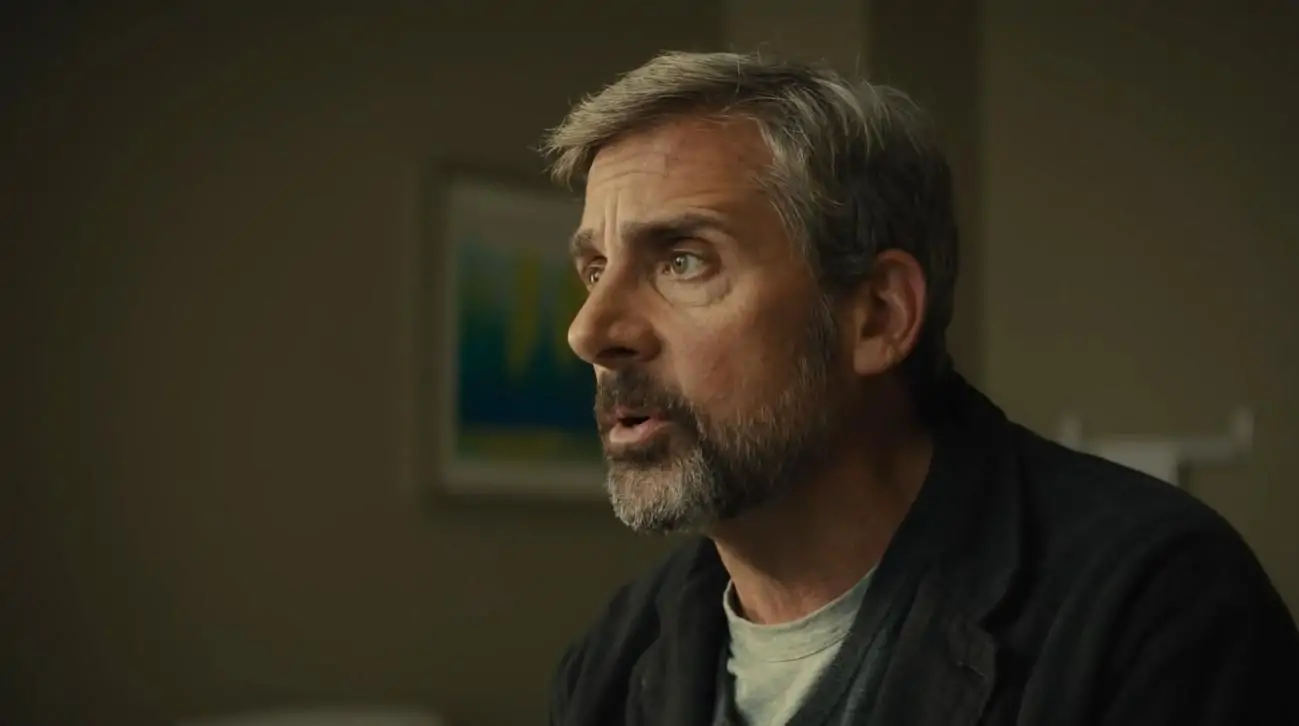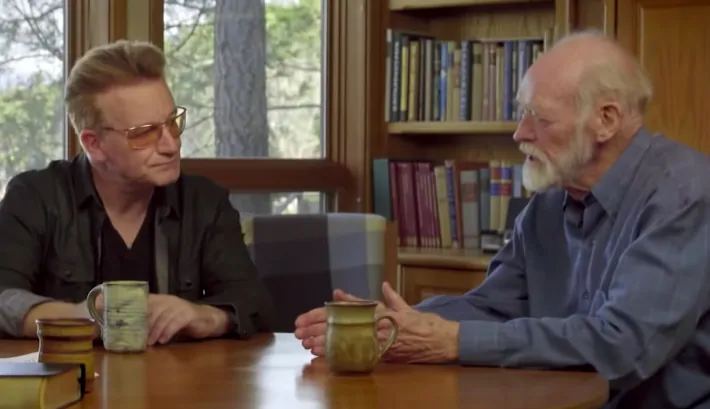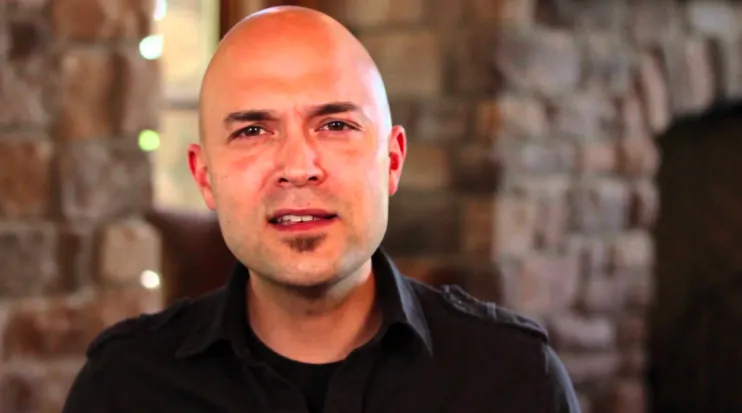
You can spot three different Steve Carells on The Office, each corresponding with the beginning, prime and tail end of the show. Of those three Steve Carells, the best is known as SCARN (Steve Carell’s Amazing Right Now), who presided over The Office’s peak. The other two Carells are great, but SCARN is special. More on him later.
The Office began not with SCARN, but with SCONE (Steve Carell, One-Note Entertainer). SCONE was a comedic performer through and through, and a very good one. He had a talent for transforming middling scenes into movie-wide standouts, and that made him always feel more involved and present in a movie than he usually was. SCONE was terrific in Bruce Almighty and he was iconic in Anchorman. That brought him to The Office, and as the first season searched for its identity, SCONE did, too.
Season one of The Office didn’t ask much from SCONE. Really, it asked him to deliver his best Ricky Gervais impression and as a result be a complete and utter scumbag. The results were funny, because SCONE was funny, but SCONE wasn’t playing a character so much as a joke machine. That made it tough for SCONE to become anything more flavorful and interesting than, well, a SCONE.
Let’s skip over SCARN for a second to talk about the third version of Steve Carell on The Office, SCOOP (Steve Carell Outside of Performance). SCOOP appears at the end of The Office when Steve Carell is for-real leaving the show. He alters his portrayal of Michael Scott just a little so he can close out his time on the show as both a character and human being, which a) probably made seasons 5-7 of the show a bit worse in quality, but b) gave us defining moments like this:
SCOOP had unimpeachable moments, for sure, but the legacy of SCOOP pales in comparison to SCARN, who presides over seasons two through four of The Office, the prime of the show. SCARN takes the caricature of Michael Scott and turns it into a character, using one of the best comedic performances of the new millennium to create one of his era’s most enduring, quotable characters.
How did SCARN pull this off? The secret lies in his reversal of a common character-building technique: the introduction of the flaw. In storytelling, the best plots are driven forward by the protagonist’s shortcomings. John McClane instigates events in Die Hard because he overestimates his own strengths. Bradley Cooper’s A Star Is Born character pursues Lady Gaga because he needs external validation to be satisfied. Wolverine’s pessimism puts him at odds with his mission to take Laura to safety in Logan. When characters have problems, their stories become more interesting. In the best cases, it’s the reason they have stories in the first place.
Michael Scott begins The Office made up entirely of flaws. He’s insensitive, mean-spirited and self-serving. It’s funny for six episodes, but wears on you fast. When SCARN arrives, instead of stacking another flaw on top of everything we’d already seen, he adds some virtue to Michael Scott and boils down his flaws into something empathic and meaningful.
SCARN made Michael competent as a manager, but twisted his maliciousness into something founded in deep insecurity. Michael Scott needs approval from other people. That’s why he makes bad jokes and leads insufferable conference-room meetings and settles for an abusive relationship with Jan Levinson-Gould. Every scene in those prime seasons of The Office shows Steve Carell giving a complete performance. He’s not only funny and warm and appalling and exasperating, he’s funny while being warm and appalling and exasperating. He presents a complete person, at all times, all at once. That’s really excellent acting.
In the years during and since The Office, we’ve seen Steve Carell extend the SCARN version of himself and present it in a variety of other roles. It’s been surprising and exciting and diverse beyond what anyone would predict.
The first glimpse of SCARN outside The Office was in 2006’s Little Miss Sunshine (some would point at 2005’s 40-Year-Old Virgin, but it’s just a bit too SCONE-y; Carell mostly reacts to other funny people in it). Sunshine saw Carell channel a lifetime of emotion through the experience of a disgraced, rejected, defeated gay man. His finest scene, no doubt, comes when Abigail Breslin’s character asks him about his suicide attempt. Carell speaks without emotion, but his face carries a story and a half. It’s SCARN.
When unleashing the SCARN, Carell would keep angling to surprise audiences, whether as scumbag father Trent in The Way, Way Back or troubled conniver Mark Baum in The Big Short or in his Oscar-nominated turn as the self-inflated and possibly deranged John du Pont in Foxcatcher.
The latter saw the most acclaim, but Carell’s performance has been buried a bit with time, which is a shame. He appears alongside two really strong scene partners in Mark Ruffalo (three Oscar noms) and Channing Tatum (underrated since Magic Mike), but opposite both of them, he holds court, even winning the scene if such a thing were possible. Whenever the camera’s not on SCARN, you’re still thinking about him. That’s a sign of really significant acting power.
This scene with Mark Ruffalo is one of the less showy scenes in the movie (most point to this back-and-forth with Channing Tatum as a reel-worthy moment for Carell), but it’s a good example of how SCARN puts all of himself into a character. It’s a physical scene—Carell hunches like a worn-down ape, and he punctuates his lines with all kinds of little touches and pokes at Ruffalo—and SCARN brings all the tics and habits you’d expect out of an award-worthy performance. But there’s a lot behind that prosthetic nose, too. Carell gives du Pont an air of calculation and suppressed paranoia. The worst parts of Michael Scott are withered and shriveled even further. Here’s someone who will do anything to be respected.
With Carell’s recent part in Beautiful Boy on the heels of his turns as Bobby Riggs in Battle of the Sexes and a subdued veteran in Last Flag Flying, the reign of SCARN continues. Carell is still funny—that Riggs turn is delightful—but he’s not just a joke guy. Most big-name comics interact with drama in fits and starts (Will Ferrell in Stranger Than Fiction, Jim Carrey in Eternal Sunshine and Truman Show), but Carell is leaning all the way into the genre. In fact, he’s using what made him a great comic actor to become a great dramatic actor.
Because remember, the emergence of SCARN came with the arrival of deep-rooted virtue in the Michael Scott character. That took Michael from someone impossible-seeming to totally believable. Scott was still ridiculous, of course, but he became human enough for you to project your own experience onto him, and that’s what made The Office a great show. It wasn’t your workplace, but it reflected aspects of your workplace. That gave everyone, truly, a way to connect with Dunder Mifflin.
That’s the through-line of Steve Carell’s career. He still yucks it up in a studio comedy every now and then, but more often than not, he’s reaching for more meaningful parts, exploring issues like meth addiction (Beautiful Boy), suicide (Little Miss Sunshine), PTSD (Last Flag Flying) and self-worth (Foxcatcher). That ambition has made Carell one of the must-see performers of today, but his roles are never about him, they’re about how he can serve us. By watching Carell, we learn things, and we see people who aren’t us or him or Michael. Because great acting doesn’t just show you someone else. It shows you something true.






















